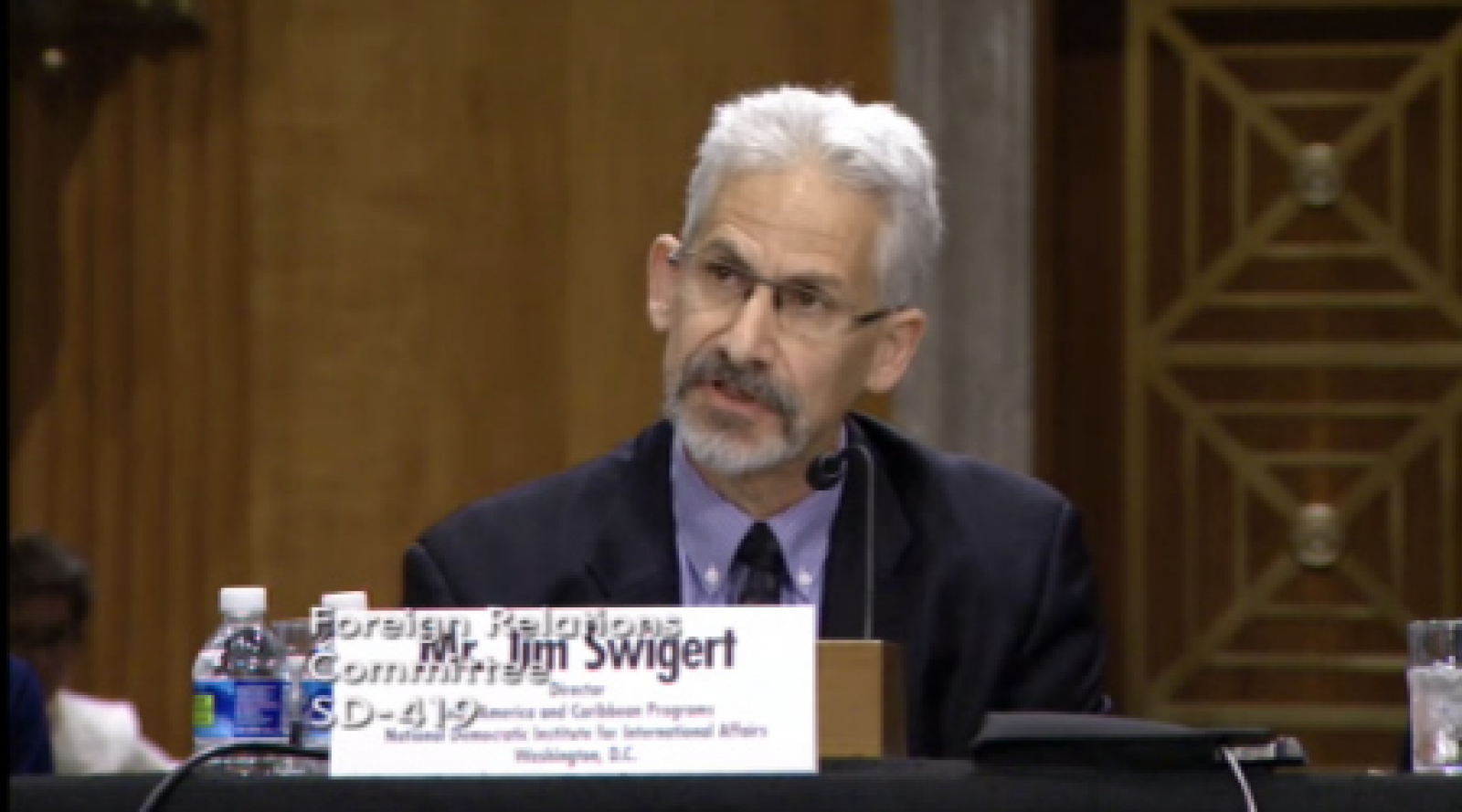
SHARE
On Tuesday, April 19, NDI’s Regional Director for Latin America and the Caribbean, Jim Swigert, delivered remarks before the Senate Foreign Relations Committee on the prospects for democracy in Central America’s Northern Triangle. Swigert’s testimony pointed to endemic violence, impunity from the law, and corruption as the three biggest impediments to good governance in the Northern Triangle region of El Salvador, Guatemala, and Honduras. These factors, coupled with deep social inequality, lack of economic opportunity, and unresponsive political institutions, contribute to the region’s migration crisis and undermine democracy.
Swigert noted ways in which Northern Triangle governments and civil society can collaborate with the United States to address persistent problems affecting the region. The three countries of the Northern Triangle have formed the joint Alliance for Prosperity to work together to overcome the development, security and governance challenges to the region, and have the active support of the United States, the Inter-American Development Bank, Chile, Colombia, and Mexico, among others. The Alliance provides the opportunity for greater regional cooperation, sustained engagement from Central American leaders, and democracy-strengthening efforts by organizations like NDI. Swigert’s remarks underlined the importance of continued U.S. assistance to the region.
“[The Alliance for Prosperity] provides additional needed resources and equally critical, real incentives for Northern Triangle governments to follow through on much needed reforms,” Swigert said. “Congress’ role in ensuring oversight and monitoring for effective use of the resources -- with hearings such as this -- has been critical.”
NDI programs in the Northern Triangle have successfully promoted dialogue among civil society, political parties, and government institutions at the municipal, national, and regional levels to strengthen democratic governance. Since 2010, NDI has contributed to democratic engagement on citizen security policy by:
-
Organizing international exchanges of best practices in advocacy and strategies for violence prevention;
-
Designing and conducting courses to analyze regional challenges and share best practices for engaging citizens and effective policy making; and
-
Assisting municipal actors to develop and implement local violence prevention initiatives.
The Institute assists civil society organizations to communicate citizen concerns to political leaders while helping parties and governments engage with constituents to develop more effective, transparent, and responsive policies. NDI civic partners, like Alliance for Peace and Justice in Honduras and the Pro-Justice Movement in Guatemala, actively support concrete policy reforms and closely monitor government actions.
In turn, such programs have resulted in increased government outreach to civic groups. Swigert testified that in Guatemala, for example, extensive interaction between civil society leaders, legislators, government and political party leaders has resulted in the approval of key elements of anti-corruption legislation and stalled political reform. Guatemala’s experience over the past year suggests that sustained public engagement is key to advancing reform.
NDI partners and other civil society organizations have successfully advocated for political and electoral reforms in all three countries of the Northern Triangle. Regional exchanges are taking place not just among governments, but among political and civic leaders to promote a unified regional agenda. However, Swigert stressed that much more needs to be done to support these efforts. He also noted that Northern Triangle legislatures have a key oversight role that should be supported in addition to bolstering their law-making functions.
“Citizens want more from their democracy than just regular elections,” Swigert said. “They want democracy to deliver on security and opportunity. And the tension between the public’s belief in democracy in the Northern Triangle and acute disappointment with its performance, adds an an element of political volatility to the governance challenges.”
Published on April 21, 2016


